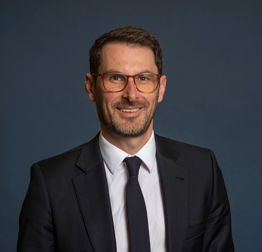The launch of My Food Bag in Auckland over the last couple of weeks has attracted a lot of media attention, not all of which was intended.
In time-honoured PR fashion, a number of high profile tweeters and "networkers" were sent free food bags to trial over the first week, and at a not insignificant cost for the company - a "gourmet" food bag containing four meals for two people is priced at $139. A flurry of positive media coverage followed - at its most extreme, TVNZ's Breakfast programme hosted the company's three founders to talk lovingly about the service, before slipping into the conversation that Breakfast's two anchors had been sent free food bags the day before.
However, the more interesting debate was unfolding on Twitter, where a number of journalists and media personalities were tweeting sweet nothings about the service, dutifully using the hashtag #myfoodbag (as had been suggested by the company's PR agency). But it was the lack of the #ad hashtag - a measure sanctioned by the ASA late last year to help identify advertising and endorsements on Twitter - that caused a fuss.
The ASA's guidelines say that the hashtag is required for "paid-for Twitter endorsements", in what is probably a deceptively narrow phrase. It's reasonably clear that indirect payment or payment in kind (such as free food) will still mean an endorsement is "paid for", but beyond that, it's difficult to know where to draw the line.
In an interview with Mediawatch following the release of the guidelines, Hilary Souter, the chief executive of the ASA, referred to the need for a "commercial relationship" between the brand and the tweeter. The logical thinking there is that the commercial relationship would need to require - whether specifically or as part of an overall promotional role - the tweeter to promote or endorse the product or service.
While not necessary a feature of all endorsements, if a brand has control over the copy or content of a tweet, then that must also be highly suggestive of "advertising".
While the ASA here hasn't yet been asked to apply its thinking to a complaint, that approach would be consistent with decisions issued by the UK advertising regulator - Nike were slapped on the wrist for using the accounts of footballers Wayne Rooney and Jack Wilshere to link to a brand website, and Snickers got into hot water (though were eventually cleared) over a campaign involving Katie Price and Rio Ferdinand.
Both the Nike and Snickers decisions involved the brands essentially taking over those individuals' twitter accounts, so that pre-ordained marketing messages (straplines, slogans and all) were sent out. In a less clear-cut decision involving Publisher's Clearing House and TV presenter Keith Chegwin, the UK ASA ruled that even though Chegwin had tweeted an 'endorsement' of his own free will, it was still in the context of a commercial relationship he had with the brand that required him to undertake "promotional activities". Therefore, his tweet was advertising, and an identifying hashtag (such as #ad or #spon) should have been used.
In all those cases, the common element was that the individuals had clear commercial relationships with the brand (in the case of Wayne Rooney and Jack Wilshere, endorsement deals worth several million pounds), to which the offending tweets could be linked.
So where does this leave the My Food Bag tweets? By all accounts, there was no agreement that those who received free food bags would endorse the company on Twitter (though this may have well been encouraged), and no suggestion that My Food Bag had any control or direction over what was said - in fact, there was nothing to stop anyone from slating the service or the quality of the food, had they wished to.
So if the test for an endorsement is the existence of a 'commercial relationship', then presumably that involves more than being sent an unsolicited trial product, and My Food Bag's activities haven't crossed the line from PR into advertising.
Legal issues aside, there does a remain a valid question about whether the tweeters should have disclosed that they had been given free products - though that's probably more of a question for each of those individuals (and any professional standards or integrity that might be expected of them), rather than the company or its PR agency.
This article was written by Allan Yeoman, a senior associate at law firm Buddle Findlay, specialising in IT, media and advertising.

